[ad_1]
There’s just something about a professional clean that feels different to a regular clean – so much so that it can feel impossible to replicate if you’re not an expert. Thankfully however, there are ways to conduct a professional-inspired clean at home yourself, as long as you know what you’re doing. So what exactly are the secret tricks of the trade? We spoke to the experts, and we’re pleased to say – here’s how to clean your house as a professional would.
For most of us (e.g. those of us who aren’t cleaning experts), getting our homes completely spick and span – especially given how often we should be cleaning our homes – can feel like a long and laborious task that requires lots of exhausting, sweaty work. So how exactly do the experts manage to clean homes so meticulously, and in a fraction of the time that it takes the average person?
The professionals have been kind enough to share lots of their top tricks for cleaning your house quickly and efficiently with us, including the handy tools they use to make the job faster, and the things most of us miss that are preventing our homes from looking immaculate. So make a note of these, and your next cleaning session should be easier (and faster) than ever.
How to clean your house professionally
It goes without saying that cleaning professionals have years of experience and practise under their belts that help them to clean our homes to the highest standard possible, and quickly, too – so don’t be disheartened if your cleaning routine doesn’t currently feel as effortless or effective.
However, these tips and hacks should help you to tackle where you might be going wrong, and should bring to light any areas where you might be missing a trick that will give your home that expert, gleaming finish.
1. Use dryer sheets for dusting

(Image credit: Getty Images)
Dusting when planning how to clean your house can be an incredibly time consuming activity, whether you’re cleaning your kitchen or cleaning a bedroom. But if it isn’t done, our homes can quickly start to feel (and look) grubby. To address this task like the pros, in the most efficient way possible, cleaning expert Sarah Dempsey at MyJobQuote, suggests a clever trick.
“Nobody likes the idea of getting on your hands and knees to wipe the skirting boards, for example,” she explains. “Luckily, there is a solution. Simply attach a dryer sheet to your sweeper, and you’ll pick up all of the dust and debris around your home effortlessly, while also adding a nice fresh scent to it.”
Not only is this much faster than traditional dusting, but this tip will make this job much less strenuous than your usual method.
2. Clean from top to bottom (literally)
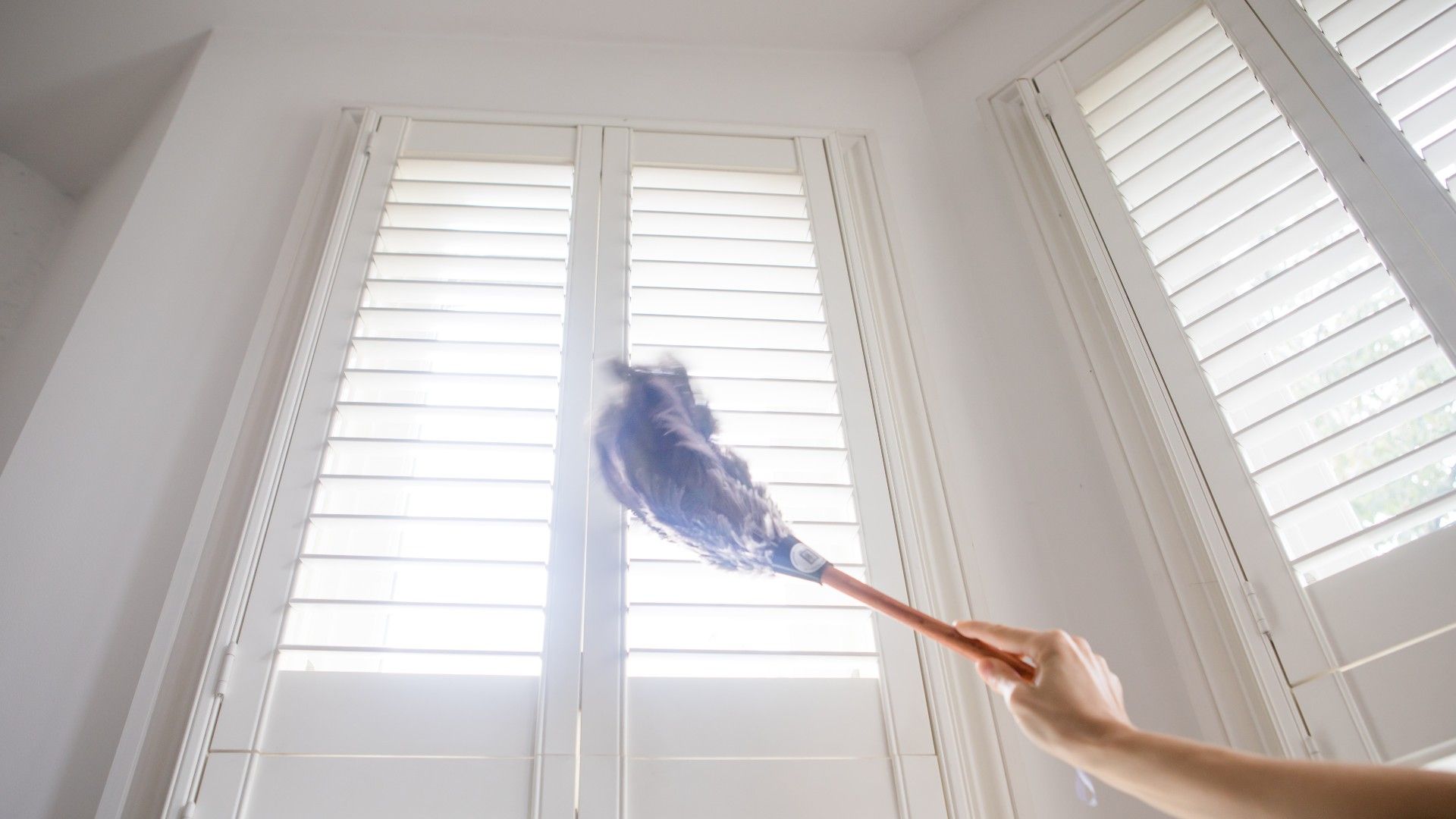
(Image credit: Getty Images)
It’s a popular tip, but one that pretty much all professional cleaners follow to avoid wasting time. When deep cleaning your house, experts strongly advise working from top to bottom, rather than starting lower and then going higher.
“When it comes to doing the full routine, my one top tip is to always clean from top to bottom,” cleaning expert Sue Caldwell from Clean Living International explains. “Perhaps one of the biggest mistakes people often make is starting with flooring, which will inevitably be dirty again by the time you’ve finished dusting, polishing and wiping down surfaces.
“As such, vacuuming carpets and mopping floors should always be done last.”
3. Address your clutter first
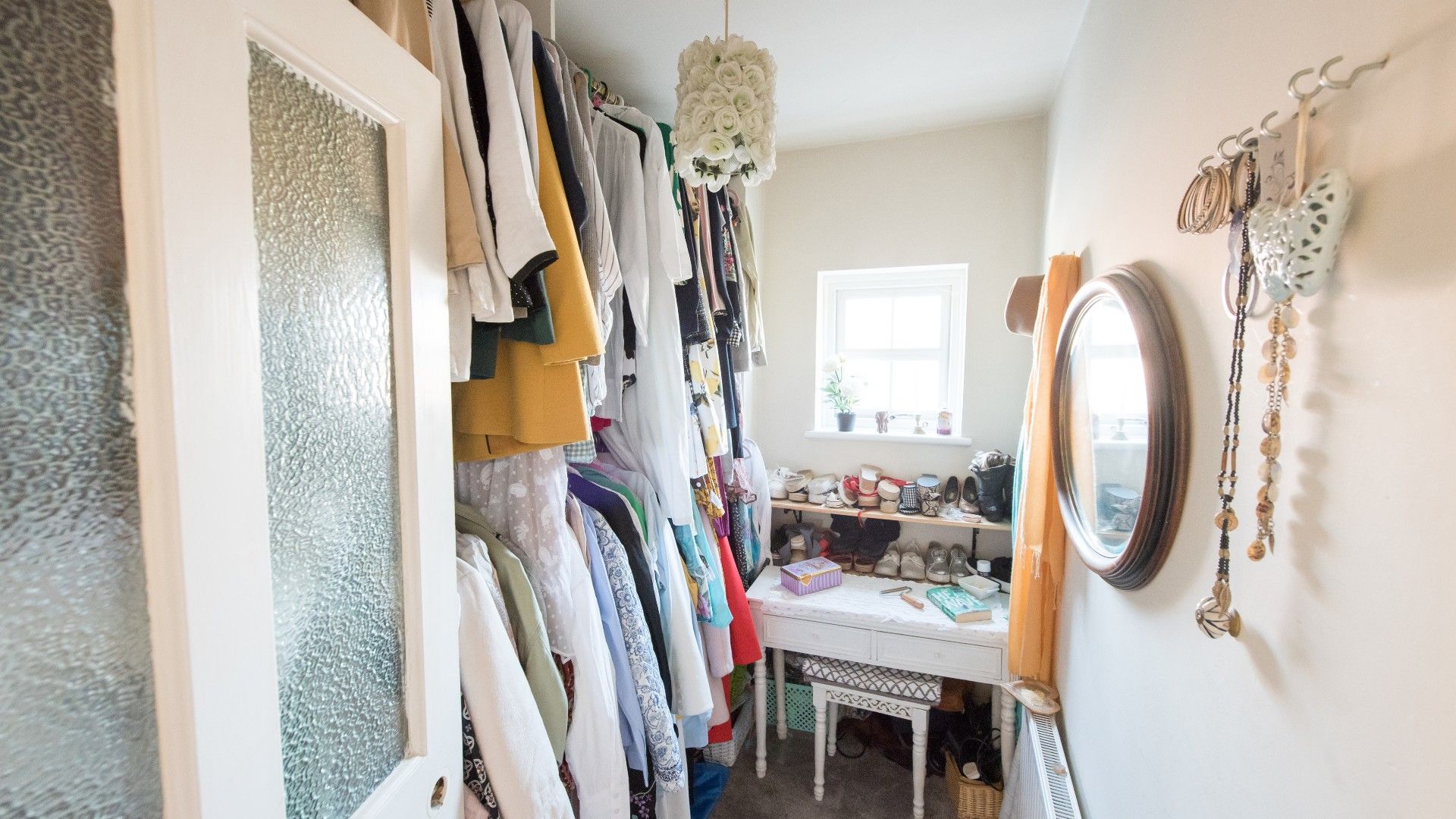
(Image credit: Getty Images)
Perhaps one of the biggest tips gleaned from the experts for how to clean a house professionally is to simply recognise that cleaning is not the same as tidying – and if you conflate the two, it’s likely that cleaning your home will take twice as long.
So before you begin with your routine, ensure that everything you own has a home, and that everything is put away, back into the correct place.
If you want to clean your home as thoroughly and as quickly as possible, getting rid of clutter is also vital. “Decluttering will make your space so much quicker and easier to clean on a regular basis, because you won’t have as much stuff to move when cleaning surfaces and floors,” cleaning expert and clean-fluencer Laura Mountford points out.
4. Keep cleaning caddies dotted around your home
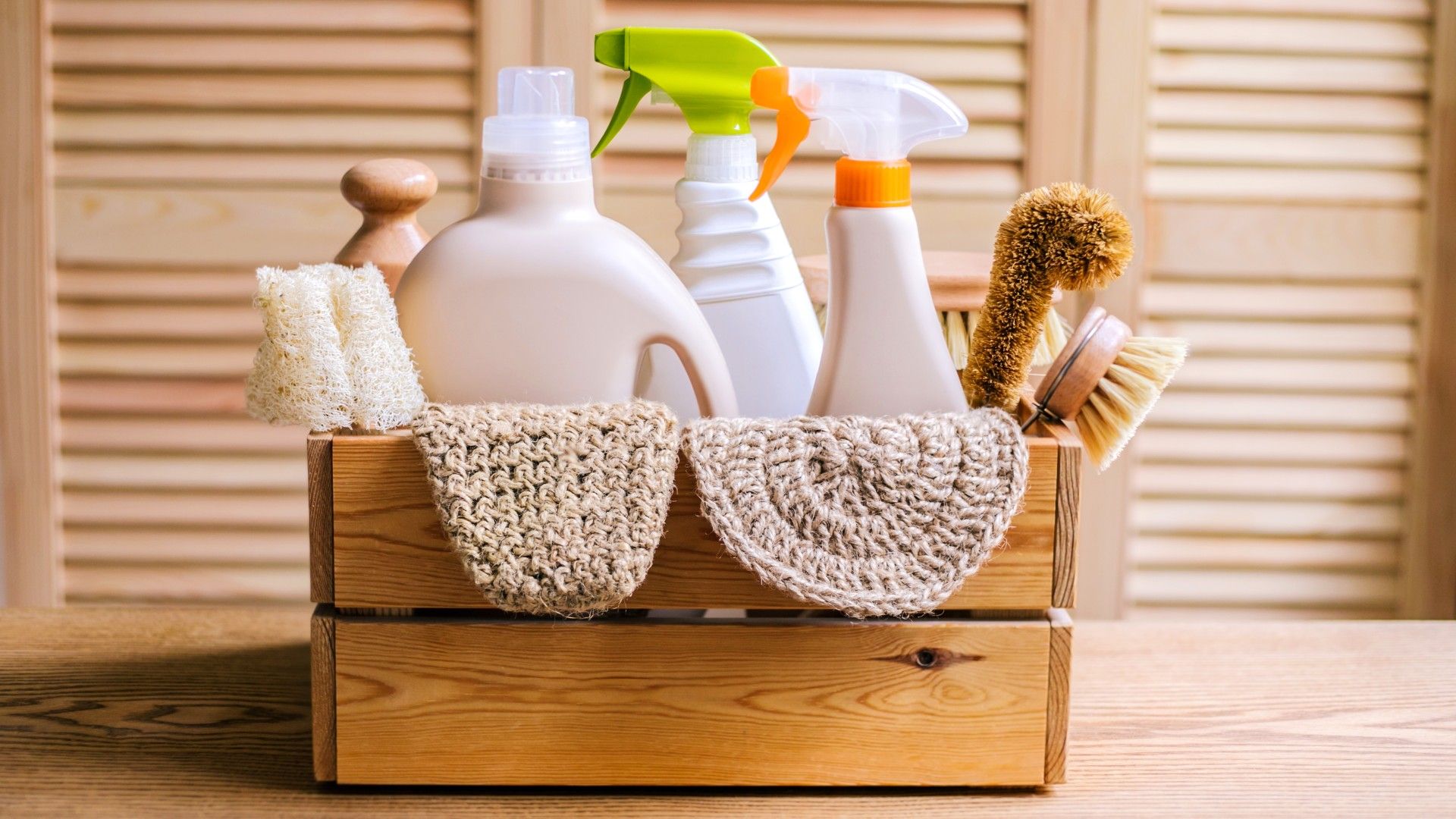
(Image credit: Getty Images)
Making your cleaning as easy as possible to get started with is vital when planning how to clean your house, the experts say. Otherwise, you’ll likely find all kinds of excuses to avoid it.
To do this, cleaning professional Laura Dent, director of So Fresh & So Clean suggests, “Keep a couple of small cleaning caddies hidden around the house for those high traffic areas.”
She then advises stashing a few essentials in there. “Upstairs, for example, get an empty reusable spray bottle and put some floor cleaner in it. When you notice your ensuite or bathroom floor needs cleaning, it’s more likely you’ll find the effort to grab the bottle from your bathroom caddy than you would the motivation to go and get your mop and bucket and set it all up, just for a small area.”
5. Don’t overlook the little details

(Image credit: Getty Images)
Addressing the biggest areas of your home – be it your shower, your kitchen worktops, or your dining table – might feel like a surefire way to getting your home looking as clean as possible. But actually, Sue explains that you should focus on the smaller areas of your home for a clean that’s up to the professional’s standards.
She says, “The key to achieving a really high standard of cleanliness at home is all in the detail. Don’t overlook little tasks such as dusting skirting boards, shining taps, and polishing mirrors. They might seem like less essential tasks, but these little extras add up to really elevate the home.”
In fact, many of the daily habits we do to make our homes clean and tidy can also have an impact here; from making the bed every morning, to plumping the sofa cushions regularly.
6. Ditch the sponges in the bathroom
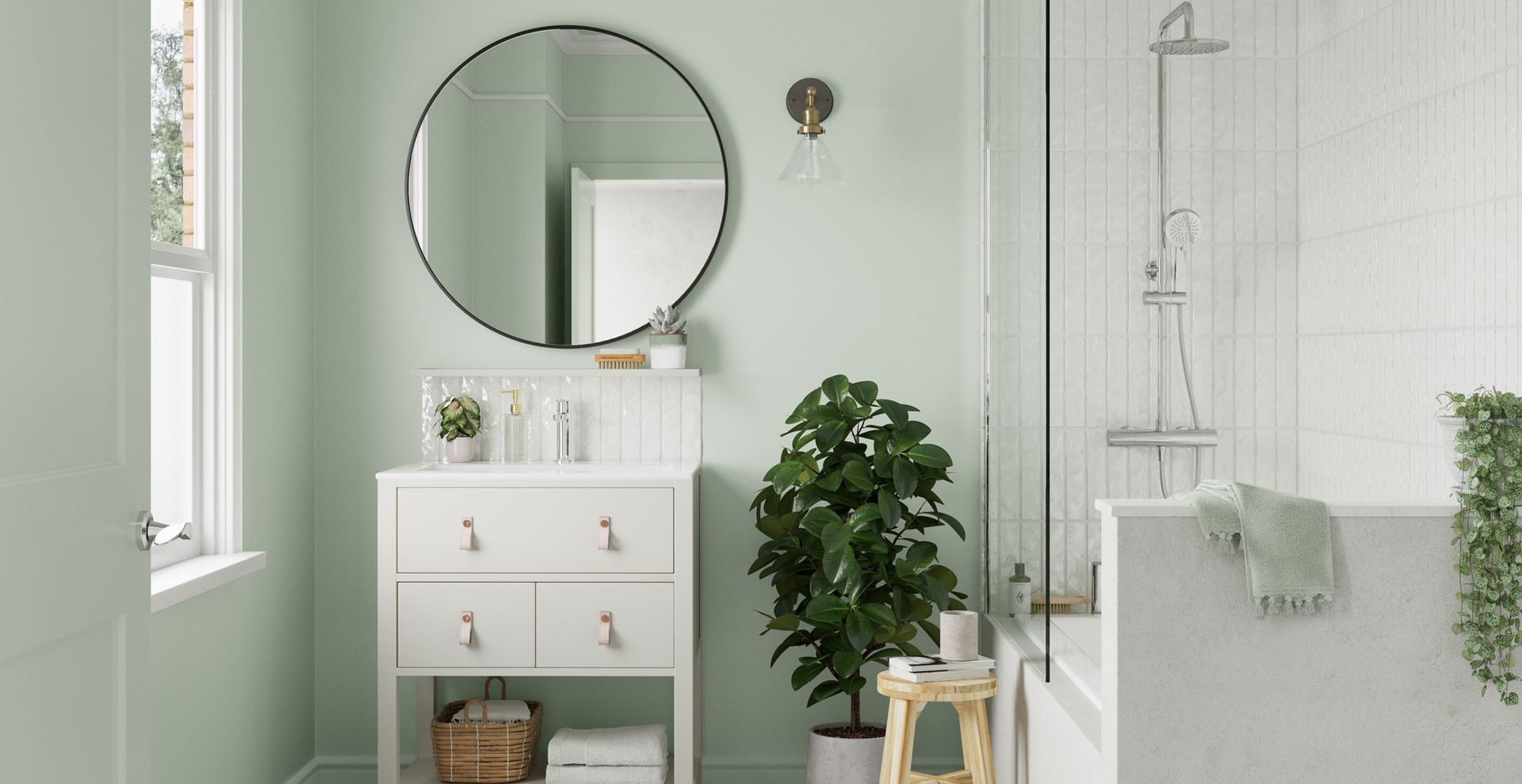
(Image credit: Dulux)
Part of the reason cleaning our bathrooms can feel so exhausting and time-consuming is that often, we need to get down on our hands and knees, or reach up high to clean showers and baths properly, straining our backs or necks in the process.
To solve the problem, Laura Mountford shares that her biggest trick for efficiently cleaning the bathroom actually involves ditching the handheld sponges and microfibre cloths.
“Instead, a long handled bathroom scrubber is brilliant for cleaning the bath and shower, and means you’ll have no more reaching up high or bending down low,” she says. You can buy these from any good homeware shop, but we love this option from John Lewis.
7. Invest in gadgets that make cleaning effortless
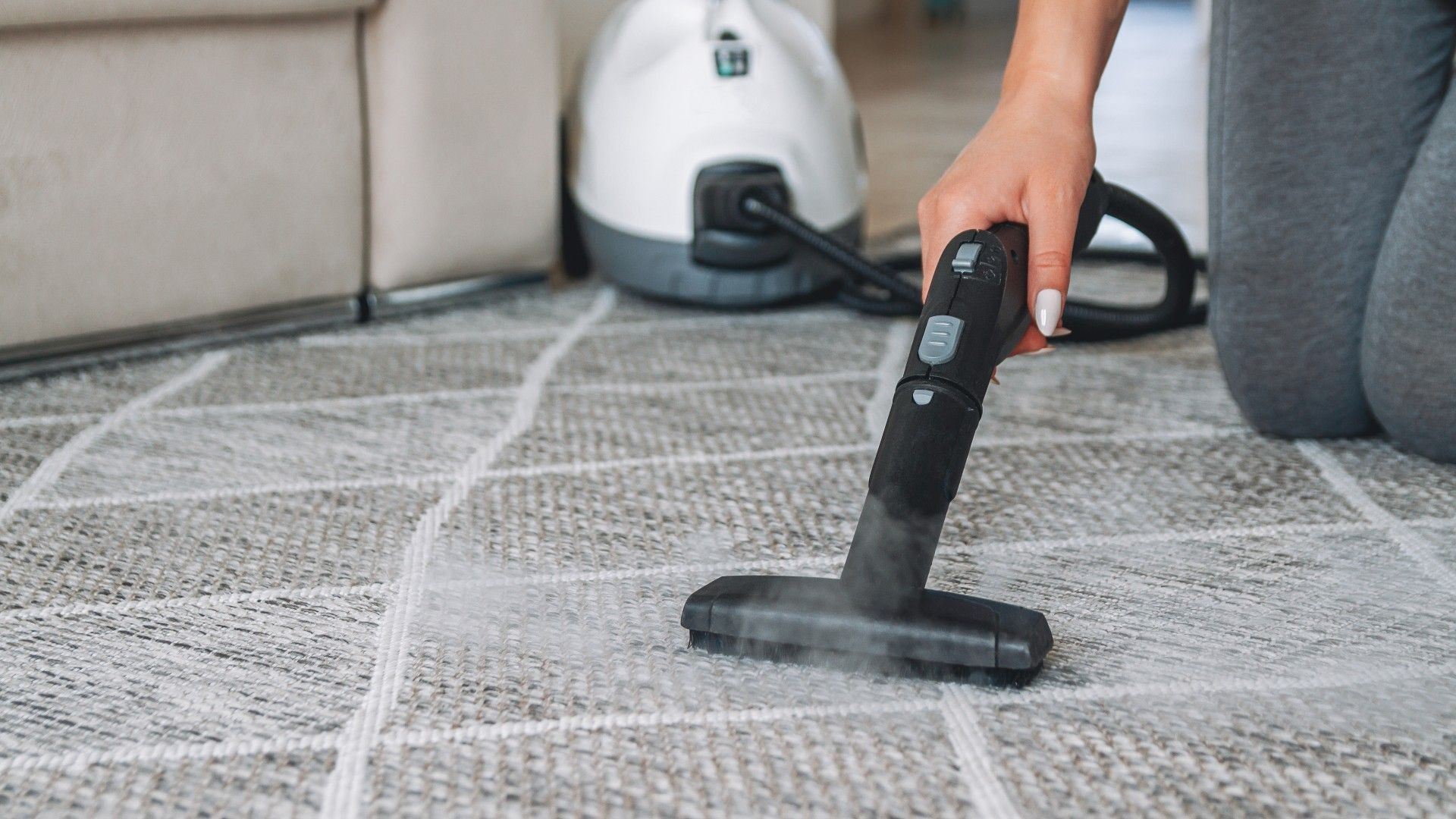
(Image credit: Getty Images)
An expert is only as good as their tools, so consider whether you current cleaning essentials are doing their job in assisting you as well as they should be. “Having the correct tools and product will immediately make cleaning much faster and more efficient,” Laura Mountford explains.
So which products do the pros specifically recommend? Laura says, “Some of my favourites are a steam cleaner, which is such a versatile gadget that can be used to quickly and hygienically deep clean your whole house, from floors to mattresses, with just water.”
Another of her must-haves include an electric cleaning brush, which vibrates to clean smaller areas of your home. “I use it all the time!” Laura says. “It can be used to effortlessly scrub surfaces and remove stubborn dirt, be it limescale or stuck on food.” Using this tool will certainly be much more efficient than scrubbing at stuck-on dirt with a sponge or microfibre cloth for minutes on end.
8. Clean the whole house in one go
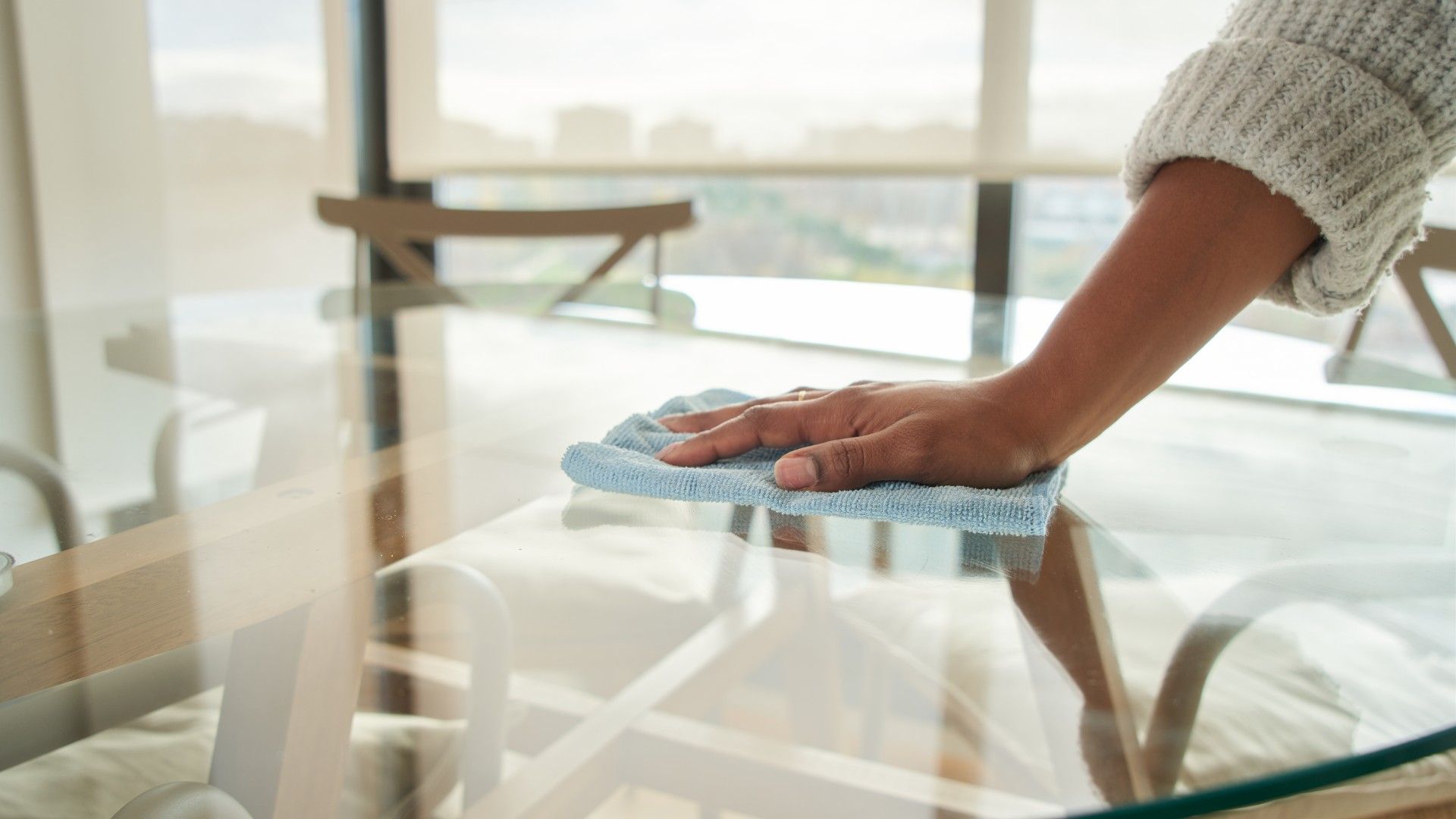
(Image credit: Getty Images)
A popular tip from the professionals when considering how to clean your house is usually to do a room at a time, so that you’ve completed at least one space if you run out of steam (or time). However, Sue urges that “we’d recommend doing the whole house at the same time or on the same day, if possible, rather than focusing on different rooms throughout the week.
“This helps to give that overall feel of a deep clean, rather than leaving your home looking half-finished.”
Of course, this isn’t always realistic, so tackle the kitchen and bathroom as a priority if don’t have as much time to spare. “The kitchen and the bathroom tend to harbour the most bad bacteria and are usually the busiest areas of the home. So as long as these rooms are clean, the rest of the house feels much cleaner too,” Sue says.
9. Disinfect sponges speedily
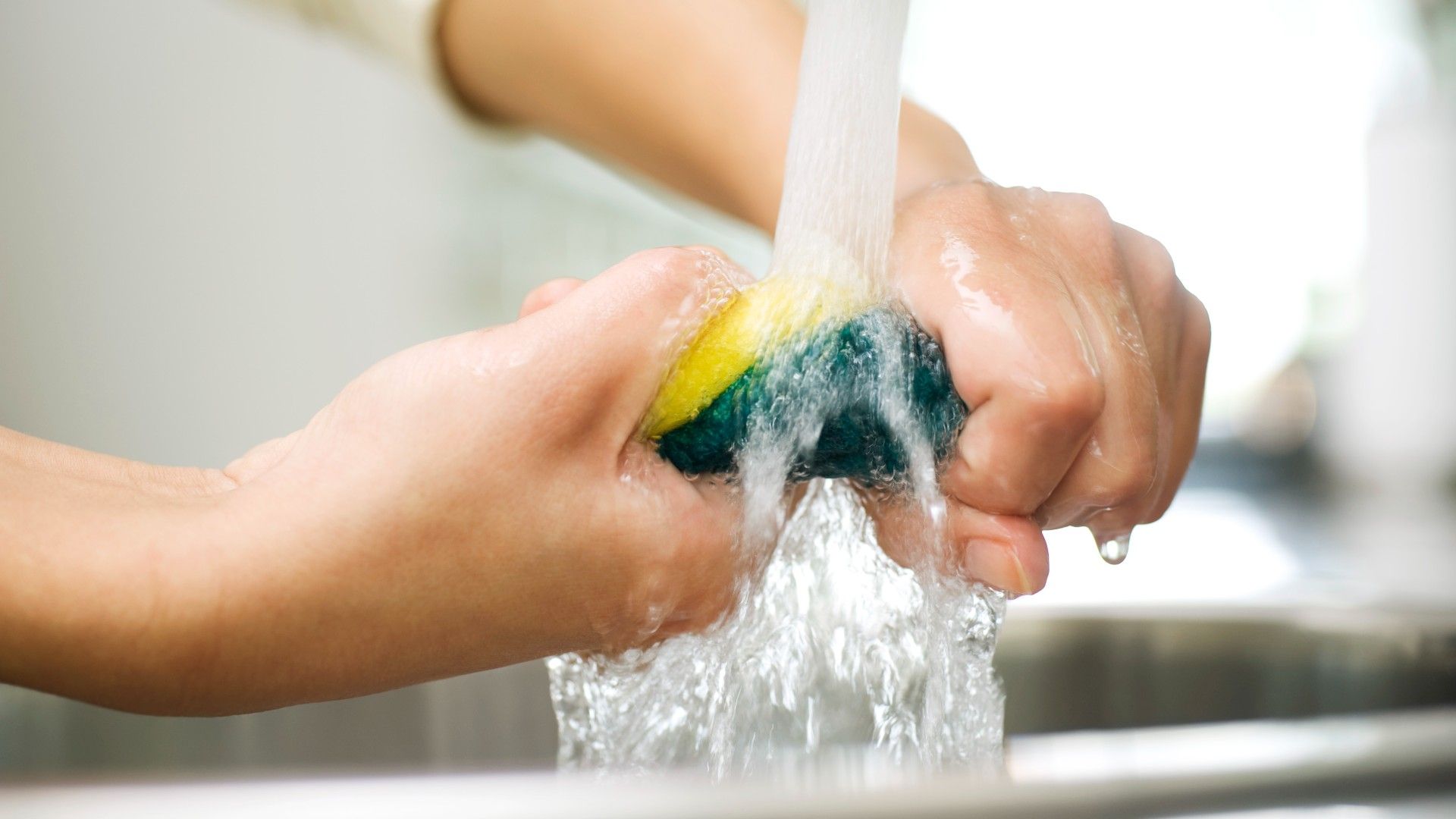
(Image credit: Getty Images)
Sponges are an essential cleaning tool, but if you want to use yours repeatedly, or are looking to disinfect it after a cleaning session, Sarah advises this easy hack.
“As your sponges get dirty, you could be spreading millions of bacteria throughout the home with every wipe. Luckily, it’s easier to disinfect your sponges than you might think,” she explains.
“Simply place a damp sponge in the microwave for 30 seconds on full power and this will reduce the amount of bacteria present on it by up to 99%.”
Far quicker than soaking your sponges in bleach or disinfectant overnight!
10. Use ‘habit stacking’
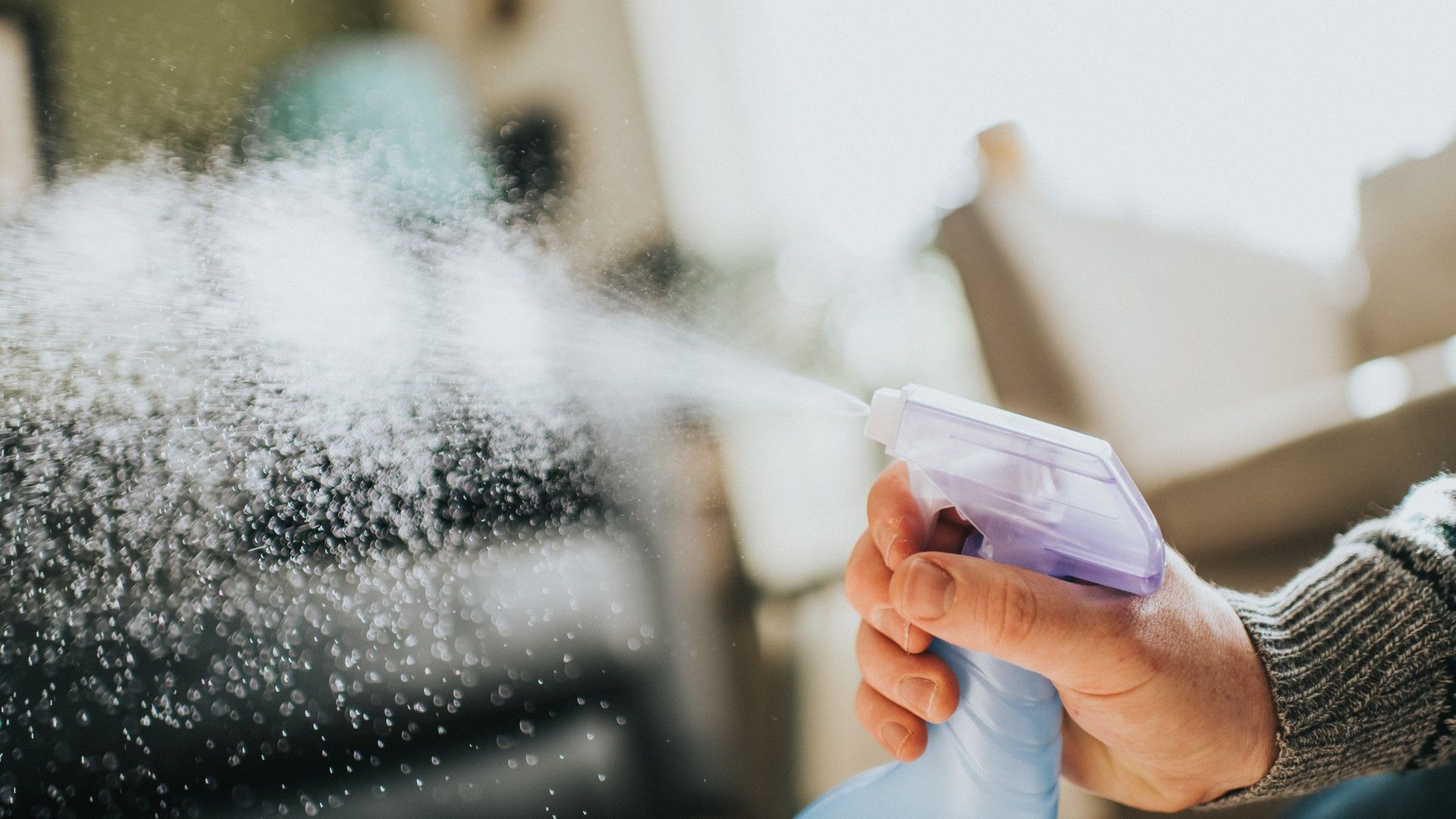
(Image credit: Getty Images)
Tackling one job at a time might seem logical, but Laura Dent explains that ‘stacking’ your chores can be a much more efficient way of cleaning your entire home.
“Multitasking – or habit stacking, as I like to call it – can help you clean more efficiently,” she says. “For example, when I’m cleaning the upstairs of my house, I like to spray the bathrooms and let the product sit for a while and do its magic.
“Then I’ll hoover the rest of the rooms, and by the time I’ve finished, the product has done most of the work for me in the bathroom, and all I need to do is a quick wipe and buff.”
However, Laura urges, “I would just be careful to not take on too much at once so it’s not too overwhelming, and you end up not finishing what you’ve started.”
11. Use your vacuum almost everywhere
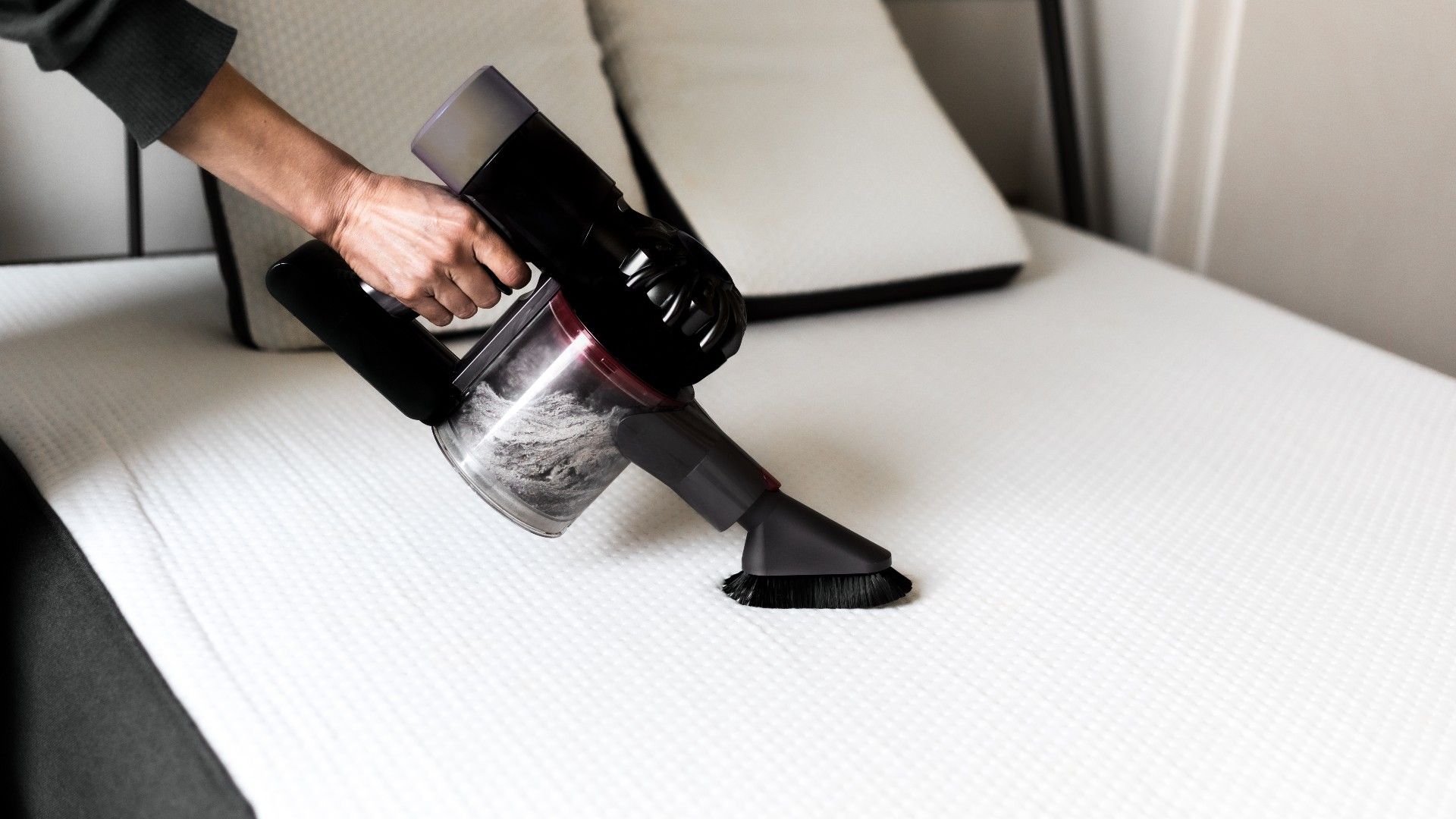
(Image credit: Getty Images)
Cleaning like a professional is all about working smarter, not harder, and one way to do this is by not limiting your vacuum’s use to your floors alone.
A brilliant time-saving secret from the experts is to use your vacuum in as many spots as you can, be it on your sofa, or to clean up cobwebs in the corners of your room.
“Make the most of hoover attachments,” Laura Dent says. “Get yourself a hoover that you can quickly switch between hard floors, carpets then brush attachments for skirtings and up high. What would normally take three different sets of equipment can be done with one, saving you time and money.”
12. Use natural ingredients to clean
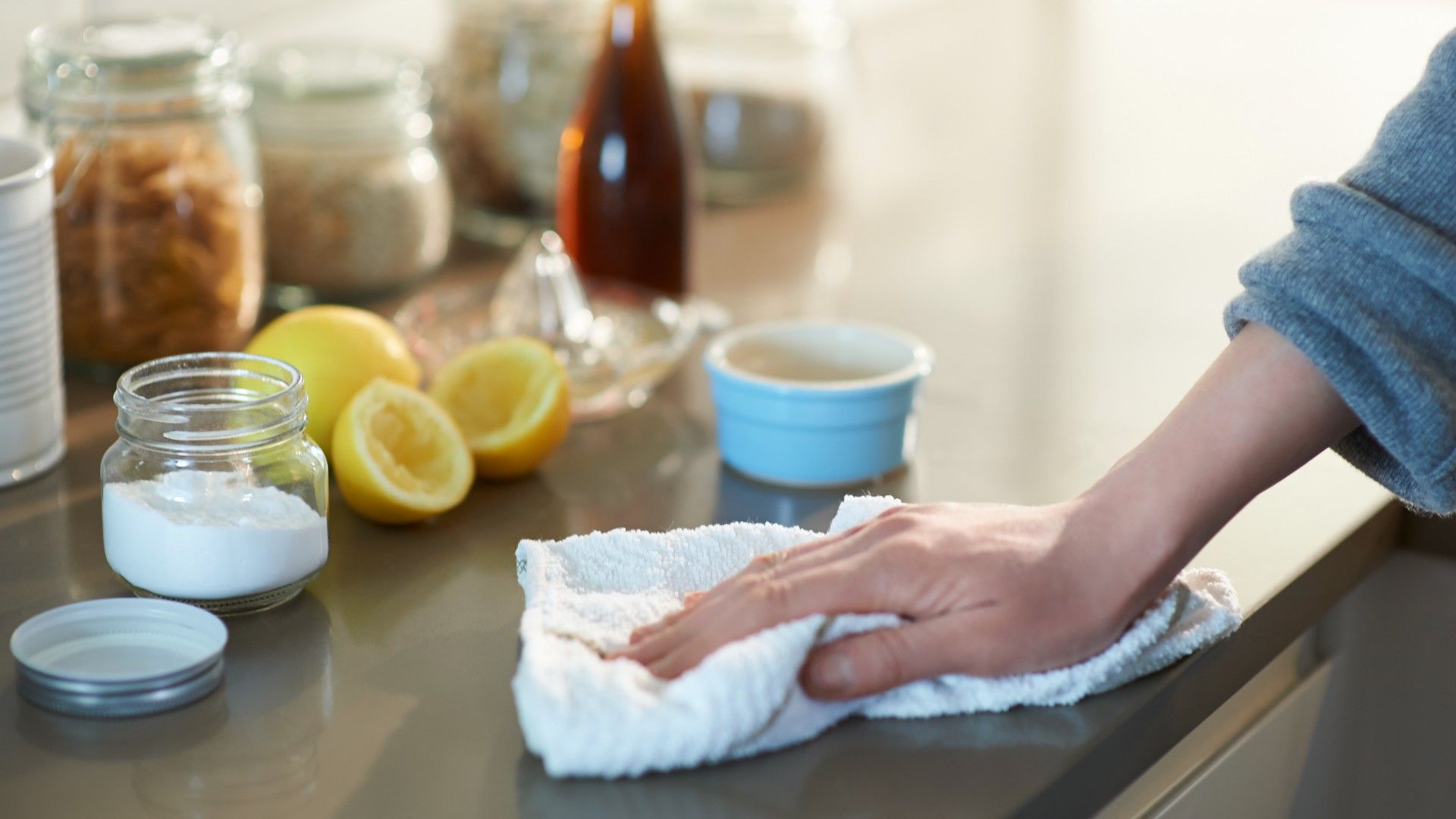
(Image credit: Getty Images)
Sometimes, the most effective cleaning tools are the least expensive. And that’s why many professional cleaners swear the most natural and simple cleaning solutions over complex (and pricey) shop-bought options.
“My main tip would be to make sure you have these four things: white vinegar, baking powder, bicarbonate of soda and washing up liquid,” cleaning expert Nicki Rodriguez, of Essex House Dolly says.
“Mixing these ingredients is a fast and effective way of cleaning your home without using harsh chemicals, and is super effective. For example, mixing the baking powder, white vinegar and washing up liquid is great for cleaning ovens,” she suggests.
Lemons are another thing many experts rely on for cleaning – in fact there are huge amount of expert cleaning hacks that involve using a lemon. Sarah shares for example, “You don’t need any harsh cleaning chemicals to get shower doors gleaming again. Simply cut a lemon in half and dip one half in salt, and use this to scrub the doors. The mixture will eat away at all of the mineral and soap scum build-up.”
13. Don’t miss these often-neglected areas

(Image credit: Chris Snook | The Main Company)
While addressing the smaller areas of your home is essential, Nicki also shares that the average cleaner will often miss spots that professional cleaners are more tuned in to.
So if you want to clean your property like an expert, don’t forget about areas that often go neglected. For example, Nicki share that many of regularly forget to clean our ceilings. “Spiders literally have an all night party up here, meaning they can be full of cobwebs.”
“Ceiling lights also are massively ignored due to either difficulty cleaning them or simply forgetting they are there and need to be cleaned,” she continued. “People also often miss their architraves – the surrounding wood around your doors – and things like door handles and light switches. But the latter of those are all top bacteria breeders, so must be addressed for a clean home.”
What is the most effective way to clean your house?
As mentioned, having an organised and decluttered home to begin with will ensure that you can do the most effective clean possible. “Time is absorbed when doing housekeeping if your home is disorganised and untidy already; you’ll end up spending 90% of your time tidying before you can actually start cleaning,” Nicki says.
So before you get cleaning, in order to do the job properly, ensure you have picked up any excess clutter and put things away.
But in addition, Laura Mountford also points out that regular cleaning is one of the most effective ways to keep your home looking as though it has been professionally cleaned. “Cleaning your home should be part of your daily routine to try to keep on top of hygiene, particularly in the kitchen and bathroom,” she explains. “Cleaning little and often will also minimise the need for deep cleans, and will stop you getting overwhelmed.”
So what sort of tasks should we be tackling on a regular basis? “Daily cleans should ideally include wiping down kitchen surfaces, doing the dishes and doing the laundry. Doing all of this daily will help you to keep on top of the cleaning,” Laura shares.
How do I clean my house like a maid?
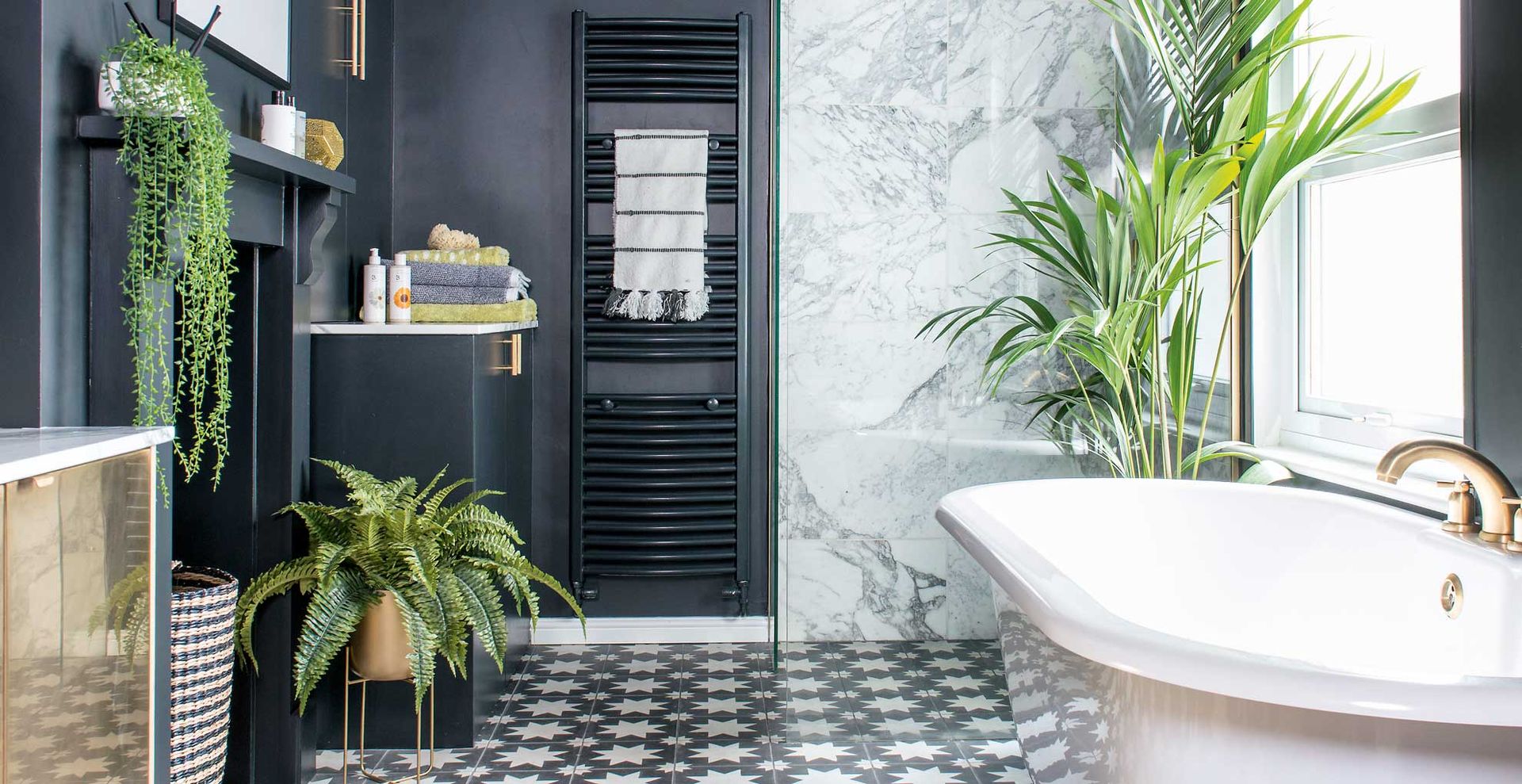
(Image credit: Future)
If you want to know how to clean your house like a professional cleaner, perhaps the most important nuggets of wisdom that woman&home gleaned from the experts are to tackle the little details with as much scrutiny as you would the bigger details, and to embrace any tricks that make cleaning easier and faster.
Cleaning is already a labor intensive task, so make things easier for yourself. Channel the experts and, for example, pick up a long-handled scrubber to clean the bathroom with, use natural cleaning products that you already have at home, and be sure you aren’t making more work for yourself by cleaning your home from top to bottom (literally).
Finally, one of the most useful tips from the professionals is to kick off one cleaning job while you get on with another, as discussed by Laura Dent.
For example, why not load up the dishwasher and clean the kitchen during the time it takes? When you’ve finished scrubbing your countertops, you’ll have another job done within the same time frame, and you can get straight on with putting away your clean dishes. It’s a win-win!
[ad_2]
Source link